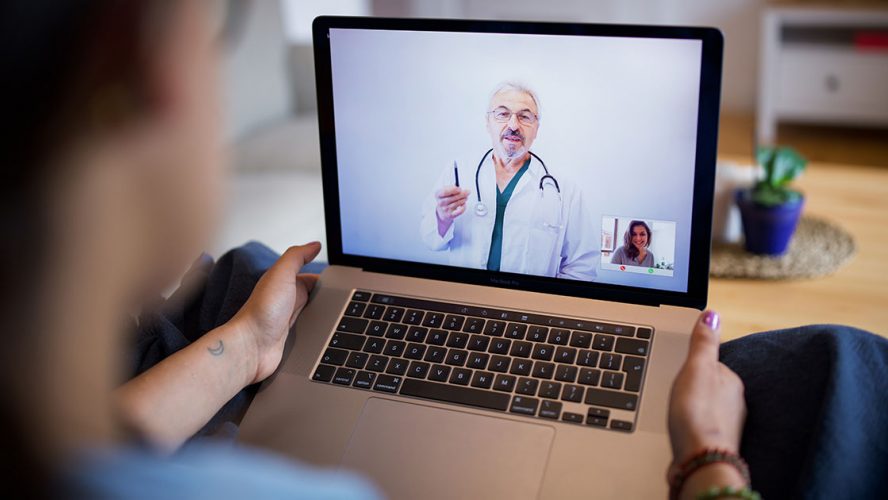Cancer researchers are studying the impact of the COVID-19 pandemic on cancer screening, diagnosis, treatment, and outcomes — and will continue to do so for years to come.
We commend the concerted research effort that has led to rapid development of vaccines for COVID-19, and we also recognize how much remains to be done. The COVID-19 pandemic has disrupted everyday life for everyone. Some of that disruption includes changes to cancer care that will continue into the future:
Telemedicine
While video or phone appointments will never completely replace face-to-face clinic visits, both providers and patients have adapted positively to the use of telemedicine for care when appropriate.
More patient participation
Patients are now empowered to take an important role in their monitoring and reporting of symptoms, side effects, and adherence to treatment using patient-centered technology and applications.
Increasingly, patients are engaging in shared decision-making with their healthcare providers. There are three questions you should ask to improve communication with your cancer care team: What is my main problem? What do I need to do? And why is it important for me to do this?
Personal responsibility
Research has found links between obesity and inactivity, and increased risk for several types of cancer. Avoiding tobacco use and getting recommended screenings have been shown to lead to better outcomes. Following a “prescription” for exercise and nutrition from your cancer care team is a personal commitment to health.
Clinical trials
The COVID-19 pandemic put U.S. healthcare disparities front and center. The same populations bearing a greater COVID burden are those also bearing disproportionate burden from cancer. Disparities in access to clinical trials persist.
To advance cancer care in the future, cancer clinical trials must better serve populations most affected by the disease, and be available in the communities where people live and work.
What will not change
The dedication of multidisciplinary cancer care teams across the country who are providing quality care to patients with cancer. Together, all of us are the future of cancer care.

